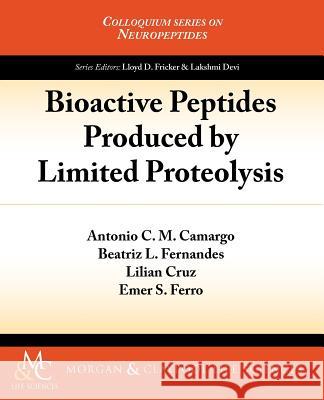Bioactive Peptides Produced by Limited Proteolysis » książka
Bioactive Peptides Produced by Limited Proteolysis
ISBN-13: 9781615043682 / Angielski / Miękka / 2012 / 92 str.
Proteins are considered supremely important for the organization, survival, and functioning of living organisms. They were considered stable and static molecules until the early 1940s, when RudolphSchoenheimer demonstrated that proteins exist in a constant dynamic process of synthesis and degradation (proteostasis), absolutely essential for life. Since then, general and limited protein degradation became some of the most fascinating aspects of biological sciences. This book is focused on a particular aspect of protein degradation, namely, limited proteolysis, which gives rise to bioactive peptides as a result of the enzymatic action of proteinases and peptidases, which are enzymes that hydrolyze specific peptide bonds of proteins and peptides, respectively. In a broad sense, bioactive peptides are any fragment of endogenous or exogenous proteins able to elicit either physiological or pathological activities. Here, we aim at presenting to the readers that bioactive peptides are not merely produced through random processes during protein degradation, but rather through a well-organized enzymatic process that is deeply integrated in the homeostatic processes of living organisms.Table of Contents: Overview and Historical Background / Bioactive Peptides Produced by Extracellular Proteolysis / Bioactive Peptides Generated by Intracellular Proteolysis / Proteolytic Enzymes / Concluding Remarks / References / Author Biographies











